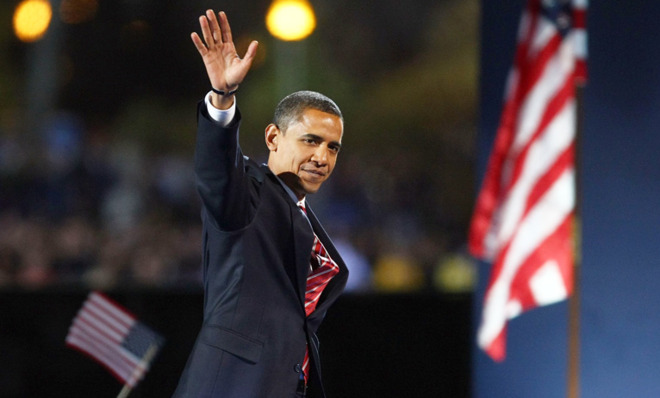How Obama is soaking the young
Past generations could expect a better life, but today's youth are picking up the tab for the baby boomers


Boosted by starry-eyed young Americans who embraced his "hope and change" message, Barack Obama ascended to the presidency in 2008 — and was re-elected in 2012. This might have made the idealistic young people who clung to his lofty rhetoric feel good — and maybe Obama really did advance their progressive social agenda. But from an economic standpoint, their support was highly ironic. They have been largely rewarded with high unemployment rates — and long-term policies that transfer wealth from the young to the old.
Consider, for instance, the Affordable Care Act. It is not exactly a win for the young and healthy.
Contingencies, the magazine of the actuarial profession, recently looked at how the Affordable Care Act would affect various age cohorts. According to their study, premiums for younger, healthier individuals may well spike by more than 40 percent.
The Week
Escape your echo chamber. Get the facts behind the news, plus analysis from multiple perspectives.

Sign up for The Week's Free Newsletters
From our morning news briefing to a weekly Good News Newsletter, get the best of The Week delivered directly to your inbox.
From our morning news briefing to a weekly Good News Newsletter, get the best of The Week delivered directly to your inbox.
A little-known provision in the law, called the Adjusted Community Rating, all but guaranteed it would turn out this way.
Here is an oversimplified — but fair — illustration of what this provision means: Let's say a 64-year-old man pays $800 a month for health insurance, and his 27-year-old neighbor pays $100. Collectively, an insurance company gets $900 to insure them both.
But according to the Affordable Care Act, health insurance premiums must fall within a ratio of 3:1 for adults. So assuming the insurance company still seeks to collect $900 a month to cover both neighbors, the older man would now pay just $675, while his younger neighbor would be charged $225.
If you're 64, this is a much better deal. But if you're the 27-year-old, you're now saddled with paying $125 more a month. That is $125 a month less that a young person can invest in a home or education or... whatever.
A free daily email with the biggest news stories of the day – and the best features from TheWeek.com
(A caveat: Assuming someone can get through the enrollment process, ObamaCare does provide subsidies to help many younger, healthier consumers pay for coverage. But in many cases, the subsidies will not be big enough to offset ObamaCare's cost increases — and many consumers will not be eligible for subsidies in the first place. For example, a family of four making around $80,000 would not be eligible for subsidies.)
Now, you might say this is simply what civilized societies do, and young people should just suck it up. That's a completely coherent argument to make if you have a liberal worldview. But ask yourself this: Was it sold to young people that way? Is this fair to them?
Health care isn't the only example of how the young are being fleeced. If being targeted by ObamaCare and enduring high unemployment rates aren't enough of a challenge for young people just starting out in life, the debt burden should add an additional level of concern.
It's not just that young people will have to pay more — it's that they are doing so to make up for the excesses of the baby boomers. As a Wall Street Journal column recently noted, "While today's 65-year-olds will receive on average net lifetime benefits of $327,400, children born now will suffer net lifetime losses of $420,600 as they struggle to pay the bills of aging Americans."
What we are witnessing today is a historic inter-generational transfer of wealth. Past generations could expect a better life, but today's youth are picking up the tab for the baby boomers. What's more, it is the policies of the man they held up as a hero that are inflaming the problem.
Young people are easy marks. They don't have big lobbies like the AARP. And despite being helpful to Obama, they are still generally taken for granted by politicians. Even worse, the assumption is that they are a wholly-owned subsidiary of the Democratic Party — a designation that means young people can be taken for granted (by Democrats) or written off (by Republicans).
Maybe young people still haven't noticed, or don't really care — at least not enough to change their voting habits. Maybe they are too interested in political issues like immigration reform or gay marriage to worry about their economic future. Or maybe as long as there's bread and circuses (beer and pizza, as my college professor used to say), they'll be fine. But I suspect some day in their 30s when they are trying to get ahead and raise a family, many of them will have buyer's remorse.
Of course, it may not take that long. There is one more irony to discuss. And that is, if healthy young people don't sign up for ObamaCare — if they don't "fall in line" — the whole system could come crashing down. The success of the Affordable Care Act is premised on healthy young people signing up. But what if they don't? What if the glitchy websites prevent them? Or what if they just make a calculated decision to pay the fine ("tax" as John Roberts would have you believe)?
It may be that banking on young people really was fraught with danger. You live by the sword, you die by the sword. Now that would be ironic.
Matt K. Lewis is a contributing editor at TheWeek.com and a senior contributor for The Daily Caller. He has written for outlets including GQ Politics, The Guardian, and Politico, and has been cited or quoted by outlets including New York Magazine, the Washington Post, and The New York Times. Matt co-hosts The DMZ on Bloggingheads.TV, and also hosts his own podcast. In 2011, Business Insider listed him as one of the 50 "Pundits You Need To Pay Attention To Between Now And The Election." And in 2012, the American Conservative Union honored Matt as their CPAC "Blogger of the Year." He currently lives in Alexandria, Va.
-
 Why quitting your job is so difficult in Japan
Why quitting your job is so difficult in JapanUnder the Radar Reluctance to change job and rise of ‘proxy quitters’ is a reaction to Japan’s ‘rigid’ labour market – but there are signs of change
-
 Gavin Newsom and Dr. Oz feud over fraud allegations
Gavin Newsom and Dr. Oz feud over fraud allegationsIn the Spotlight Newsom called Oz’s behavior ‘baseless and racist’
-
 ‘Admin night’: the TikTok trend turning paperwork into a party
‘Admin night’: the TikTok trend turning paperwork into a partyThe Explainer Grab your friends and make a night of tackling the most boring tasks
-
 The billionaires’ wealth tax: a catastrophe for California?
The billionaires’ wealth tax: a catastrophe for California?Talking Point Peter Thiel and Larry Page preparing to change state residency
-
 Bari Weiss’ ‘60 Minutes’ scandal is about more than one report
Bari Weiss’ ‘60 Minutes’ scandal is about more than one reportIN THE SPOTLIGHT By blocking an approved segment on a controversial prison holding US deportees in El Salvador, the editor-in-chief of CBS News has become the main story
-
 Has Zohran Mamdani shown the Democrats how to win again?
Has Zohran Mamdani shown the Democrats how to win again?Today’s Big Question New York City mayoral election touted as victory for left-wing populists but moderate centrist wins elsewhere present more complex path for Democratic Party
-
 Millions turn out for anti-Trump ‘No Kings’ rallies
Millions turn out for anti-Trump ‘No Kings’ ralliesSpeed Read An estimated 7 million people participated, 2 million more than at the first ‘No Kings’ protest in June
-
 Ghislaine Maxwell: angling for a Trump pardon
Ghislaine Maxwell: angling for a Trump pardonTalking Point Convicted sex trafficker's testimony could shed new light on president's links to Jeffrey Epstein
-
 The last words and final moments of 40 presidents
The last words and final moments of 40 presidentsThe Explainer Some are eloquent quotes worthy of the holders of the highest office in the nation, and others... aren't
-
 The JFK files: the truth at last?
The JFK files: the truth at last?In The Spotlight More than 64,000 previously classified documents relating the 1963 assassination of John F. Kennedy have been released by the Trump administration
-
 'Seriously, not literally': how should the world take Donald Trump?
'Seriously, not literally': how should the world take Donald Trump?Today's big question White House rhetoric and reality look likely to become increasingly blurred
